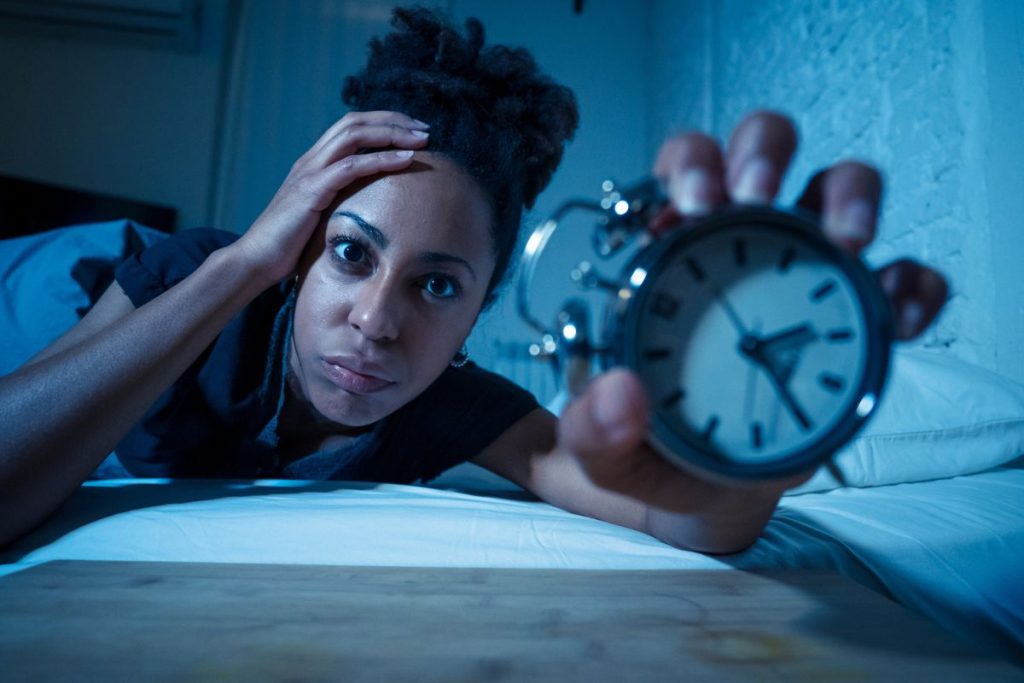Is sleep an elusive dream you’re reminded of all day long because you can barely keep your eyes open? You are not alone! Up to 60% of menopausal women experience sleep disruption. The reasons are many – physical, emotional, hormonal, and potentially environmental. So, what’s a potential fix besides all the sleep hygiene tips you’ve heard before? With binaural beats, we’re going to get your brain in tune with sleep.
Getting better sleep
How many of the tried-and-true “starter” sleep techniques have you tried?
- Only use your bedroom for sleep and sex.
- Set the stage for a good night's sleep with a dark, cool, quiet room.
- Calm your mind and body with a bath and music.
- Establish a pre-bed routine.
- Limit alcohol and caffeine intake.
Are you tired of hearing about these? While they are the building blocks for a good night’s sleep, and there are many other tried and true sleep hygiene tricks, there is an alternative way that may help to get your body in tune with sleep. That’s binaural beats.
Ready to tap into the power of your brain?
Brain wave sleep music
Your brain is a powerful organ. It’s constantly buzzing with thoughts and brain wave activity. Your body produces electrical pulses throughout the day, depending on what you’re doing.
There are five different brain waves – gamma, beta, alpha, theta, and delta brain waves. They range from slow to fast and cycle through during the day on autopilot.
| Brain Wave Type | Activity |
|---|---|
| Gamma |
high levels of consciousness heightened awareness |
| Beta |
normal awake state alert problem solving |
| Alpha | resting state |
| Theta |
sleep with dreams relaxation and meditation |
| Delta | deep sleep without dreams |
While your body naturally produces these waves based on everyday signals, it’s possible for them to get off track. Sleep disruption is one of the potential culprits.
During menopause, if you’re not getting enough sleep, it can break your body’s regular sleep-wake cycle. You may experience more or less of one aspect of the normal brain wave cycle.
Why does all this matter? Because you can influence the production of these waves by listening to different types of music, which in turn can improve your sleep.
While studies on brain wave music tend to be small and limited, early findings indicate a positive association between brain wave music and sleep.
If those sleep hygiene tips aren’t working, what do you have to lose? Give it a try.

Alpha, theta, and delta brain waves
We all know the calming effects of music and its transformative ability to transport us to a range of emotional destinations.
In contrast to calming music, like ocean waves lapping the shore or birds chirping in nature, brain wave music specifically targets certain brain waves.
Remember, these waves move from fast to slow as you go through your day, wind down, and fall asleep.
For sleep, your body produces three brain waves. The deeper the sleep, the slower the wave.
- Alpha – This is a relaxing wave experienced while still awake. Your brain may enter this cycle when you meditate, practice mindfulness, or daydream.
- Theta – It’s a deep meditative wave that happens during sleep, but not during your deepest level of sleep. Typically, theta waves happen right before you wake up or as you fall asleep.
- Delta: This is the slowest wave and is experienced during a deep state of sleep.
Binaural beats
Before you start searching for alpha, theta, and delta brain wave music on YouTube, you need to understand how binaural beats work for sleep.
First, you’ll need a pair of headphones or earbuds to experience this auditory illusion. You can’t do this without a personal listening device because each ear will hear a tone in a different frequency.
It’s considered an “auditory illusion” because of the way your brain makes sense of the different sounds. Like a visual illusion, this auditory magic can lead to a meditative state, thereby inducing sleep brain wave activity.
While the music plays two different frequencies of the tone, your brain only hears one sound. So, which tone does it hear? The right ear or the left? Neither!
Your brain hears the difference between the two tones. In essence, your brain hears a third tone. According to the Sleep Foundation, “When binaural beats are sustained over some time, they can synchronize with your brain waves. As a result, binaural beats can alter your brain wave activity as well as your levels of arousal.”
Most of the beats you find on YouTube are already mixed, so you need to look for the type of beat you want, whether it’s alpha, theta, or delta.
- Alpha – Relaxed state while awake.
- Theta – Deep meditative wave during sleep.
- Delta – Deep sleep.
If you need to relax after a stressful day, try alpha binaural beats.
While this is a YouTube video, there’s nothing to watch. Remember, it’s best to listen in bed with a personal hearing device, i.e., earbuds or headphones. Headphones may be more effective than earbuds if you have both available.
Theta beats will help your brain produce a deep, meditative wave.
Delta is the slowest brain wave. Your body produces it when your it is in a deep sleep.
Do binaural beats work?
While binaural beats have been around since 1839, when Heinrich Wilhelm Dove developed the term – research is still limited. It took until the 1970s until they became popular.
According to a small study in China, listening to slow-wave sleep (SWS) brain-wave music 20 minutes before bed may improve your sleep and could relieve fatigue associated with lack of sleep.
Most brain-wave studies are small, limited, and inconclusive. For a menopausal woman searching for answers, it may offer a solution, though.
And, there’s a potential bonus benefit. A meta-analysis indicated that binaural beats can positively impact cognition, pain, and anxiety, all issues which may arise during the menopause journey.
Talk to your doctor before trying something new. And If you experience side effects, discontinue use. Only a few potential negative side effects have been reported thus far:
- irritability or frustration while listening to the beats
- If the volume you use to listen is turned up too high, long-term exposure to sound at 85 decibels or higher can result in hearing loss.
What’s your experience with binaural beats?
Can Binaural Beats Help You Fall Asleep? | Sleep Foundation
Deepest Healing Alpha Frequency | Good Vibes – Binaural Beats
Pure Theta Waves | Good Vibes – Binaural Beats
Deep Delta Wave 0.5 Hz | Good Vibes – Binaural Beats
How a Scientist’s Least Important Discovery Became His Most Famous | Gizmodo
Gao Dongrui, Long Siyu, Yang Hua, Cheng Yibo, Guo Sijia, Yu Yue, Liu Tiejun, Dong Li, Lu Jing, Yao Dezhong. SWS Brain-Wave Music May Improve the Quality of Sleep: An EEG Study. Frontiers in Neuroscience, Volume 14, 2020, DOI 10.3389/fnis.2020.00067
Garcia-Argibay M, Santed MA, Reales JM. Efficacy of binaural auditory beats in cognition, anxiety, and pain perception: a meta-analysis. Psychol Res. 2019 Mar;83(2):357-372. doi: 10.1007/s00426-018-1066-8. Epub 2018 Aug 2. PMID: 30073406.
You may also like...

Why Women+ Are Prone To Restless Leg Syndrome (RLS) And How To Treat It
Do your legs move uncontrollably at night? Learn why Restless Leg Syndrome (RLS), is more common in women and how to treat it.

Having Leg Pain And Cramps? You May Be In Menopause
Do you have leg pain and cramps, during the day or at night? It’s a menopause symptom. Learn how to treat the leg pain.

Why Can’t I Sleep During The Menopause Transition? Understanding It Can Help You Sleep
Understanding why you can’t sleep during perimenopause and menopause can help you get more sleep.

